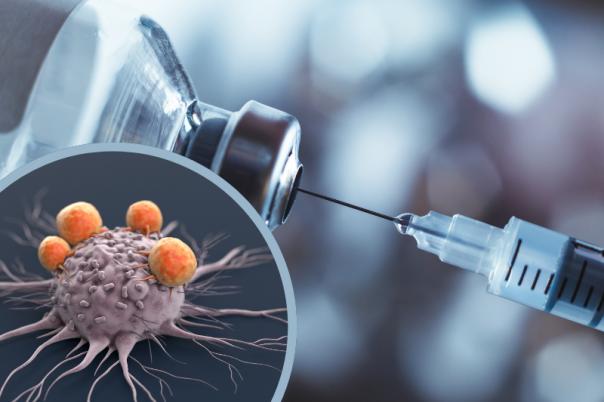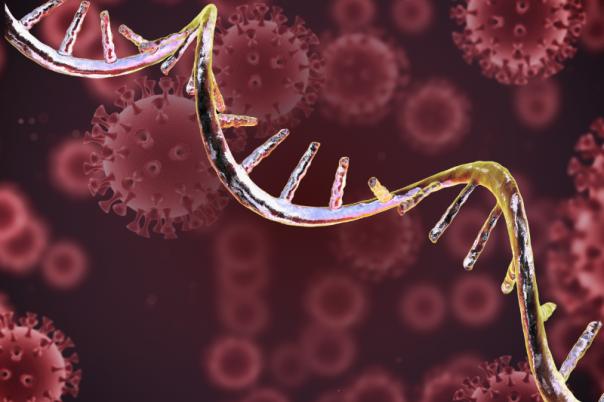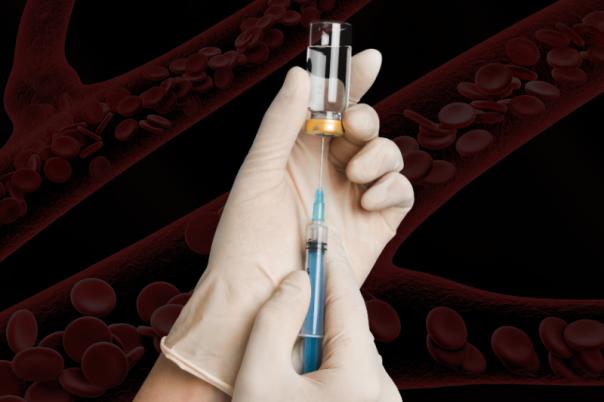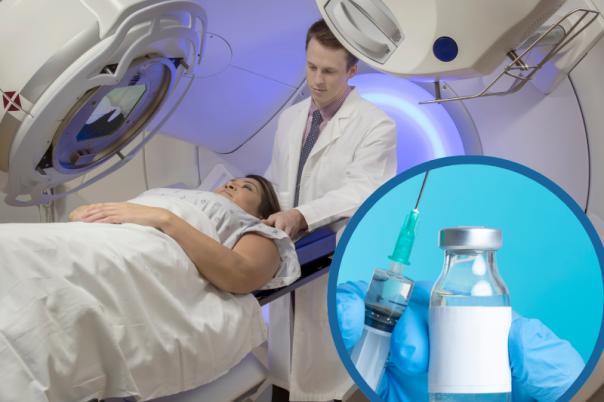Samantha Paston, Head of Translational Research at Scancell, presented on SCIB1, a DNA cancer vaccine in phase II clinical trials for advanced, unresectable melanoma. SCIB1 is a non-personalised vaccine designed to stimulate tumour-specific T-cell responses.
Paston stated: “The vector encodes for an antibody and in the antibody, we have inserted epitopes from the Melanoma antigens gp100 and TRP-2 into the CDR regions of the antibody.”
The main aim is to elicit robust CD4 and CD8 T-cell responses. The vaccine is being tested in combination with double checkpoint inhibitors, demonstrating an 85% objective response rate in early data from cohort 1.
SCIB1 operates on two mechanisms of action. The vector is taken up by antigen-presenting cells (APCs), which include dendritic cells leading to protein synthesis and T-cell activation. Alternatively, the vector induces antibody production, which is secreted and then captured by APCs to trigger a similar immune response. Paston emphasised that CpG motifs contribute to the vaccine’s immunogenicity when administered.
In earlier phase I/II trials, SCIB1 as a monotherapy showed a 60% stable disease rate in metastatic melanoma patients, with some remaining disease-free for over five years. The current phase II trial involves three cohorts:
-
Cohort 1: Patients with SCIB1 and double checkpoint inhibitors ipilimumab (IPI) and nivolumab (NEVO).
-
Cohort 2: Patients receiving SCIB1 with pembrolizumab (Pembro) only.
-
Cohort 3: A second-generation version, iSCIB1+, with broader HLA applicability, removing restrictions present in the earlier cohorts.
Paston noted that patients who are elderly or have pre-existing medical conditions may not be able to tolerate the double checkpoint, hence they only receive pembrolizumab.
In cohort 1, 11 of 13 patients responded to the treatment, with 10 showing confirmed tumour responses and one achieving complete remission.
Cohort 2 showed slower tumour regression, likely due to single checkpoint therapy. While recruitment for cohort 3 is ongoing.
Key Findings
-
ELISpot assays revealed significant T-cell activation after vaccination, with high responses to both gp100 and TRP-2 epitopes. Notable improvements in immune responses correlated with increased vaccine doses.
-
Sequencing identified dominant T-cell clones responsible for specific antigen responses. This confirmed robust CD8-mediated immunity even against longer peptides.
-
Small sample sizes show that the therapy should be tested in broader population groups but so far results are encouraging.
SCIB1 and its enhanced version, iSCIB1+, are progressing toward phase II/III adaptive trials in the UK and the US. The trials aim to confirm efficacy and reaffirm the vaccine’s potential for widespread use in melanoma treatment. Scancell plans to complete cohort recruitment by early next year and transition to registration trials.






